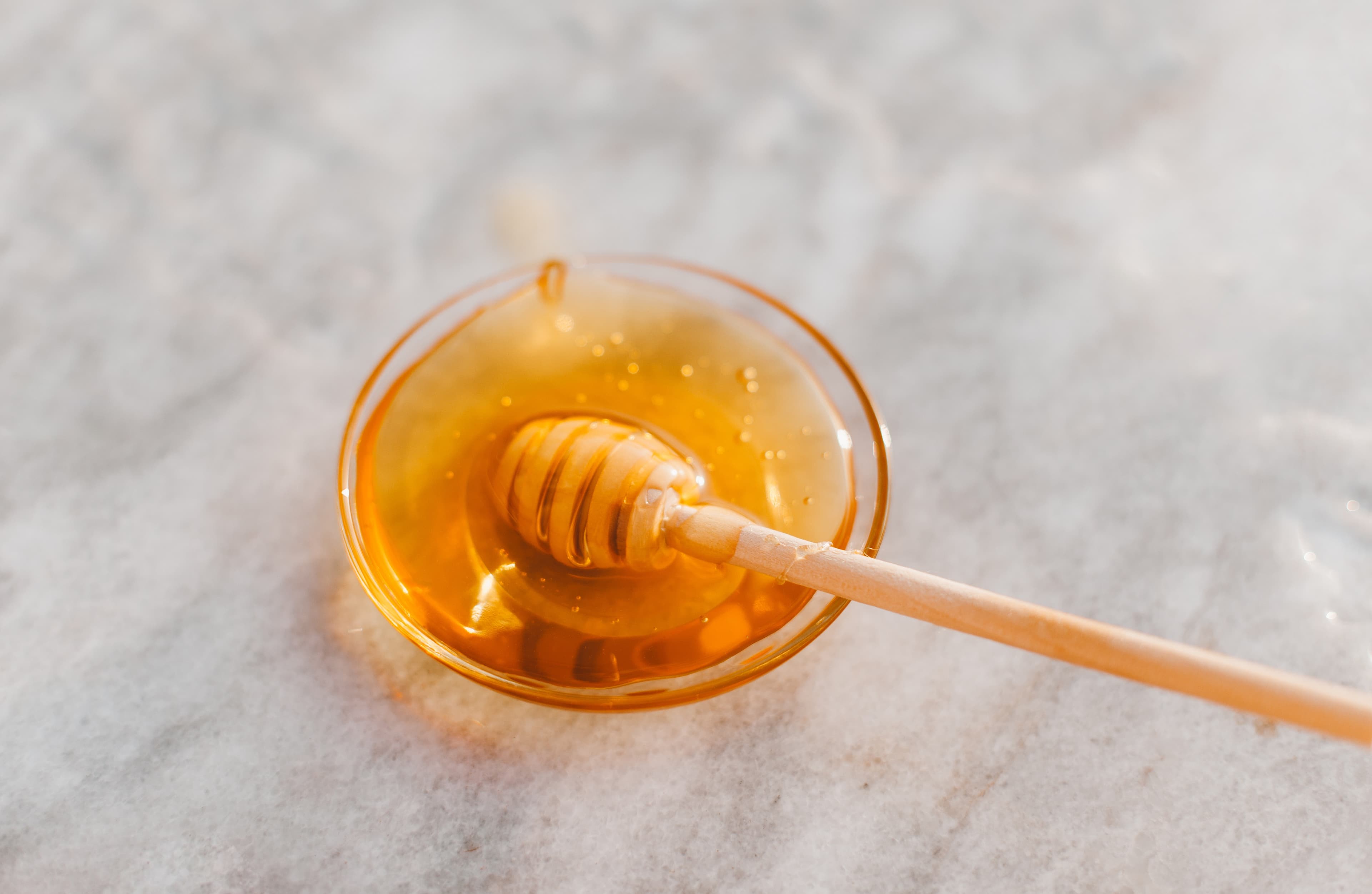Best Things to Eat for Low Blood Sugar (Hypoglycemia)

Written by Chad Birt on Mon Aug 04 2025.

If you have diabetes or another metabolic disorder, you know the risks of low blood sugar, also called hypoglycemia. But what can you do to help prevent it? To find out, we connected with two subject matter experts –– Mary Ellen Sabat, RDN, a registered dietitian and ACE-certified trainer, and Rahul Malpe, a certified nutritionist and personal trainer. Below, we've highlighted some of the best foods to keep on hand to ensure your blood sugar stays within a healthy range.
What is hypoglycemia?
Hypoglycemia is when the amount of sugar in your blood drops below normal. “Think of it like a car running out of fuel,” Sabat says. “When there’s not enough glucose, your body doesn’t have the energy it needs to function properly.” This triggers various symptoms, including lightheadedness, dizziness, and even loss of consciousness.
Almost everyone experiences low blood sugar at some point, but if the problem is ongoing, it can be life-threatening.
What to keep on hand for low blood sugar
The best way to manage low blood sugar is to keep certain foods and drinks stocked in your refrigerator and pantry. “Foods that can quickly raise your blood sugar levels are typically easy to digest and provide a rapid increase in your glucose levels,” Sabat says.
Fast-acting carbohydrates
Fast-acting carbohydrates are foods and drinks with high sugar content. "These items are absorbed into your bloodstream and quickly raise your blood sugar levels, relieving your symptoms," Malpe explains.
Examples of fast-acting carbs include:
Glucose tablets or gel (designed for quick absorption)
Fruit juices, like orange, apple, and grape juice
Honey, which can be eaten by the spoonful or mixed into a drink
Sports drinks, like Gatorade and Powerade (make sure to purchase the original formula instead of a sugar-free version)
Regular soda (not diet or zero-calorie)
Crackers
Candy, like lollipops, jellybeans, Skittles, and Starbursts
Make sure to keep these items on hand and easy to access. Low blood sugar can strike at any time, so it's important to address it quickly.
Pro tip: Always pack a small bag with at least one snack and one drink before leaving home. But be careful! "Sports drinks, like Gatorade, can provide a quick source of glucose to raise blood sugar levels if you're feeling lightheaded or shaky," Sabat says. "However, it's essential not to overdo it, as excessive sugar intake can lead to other health issues."
Complex carbohydrates
"Complex carbohydrates, like whole grains, fruits, and vegetables, help stabilize your blood sugar levels over time," Sabat says. "These carbohydrates are unique in that they take longer to digest and release glucose more slowly into your bloodstream," adds Malpe.
Examples of complex carbohydrates include:
Whole grains, like brown rice, oatmeal, and quinoa
Vegetables, like butternut squash, beets, and parsnips
Fruits, like bananas, apples, and mangos
Beans, lentils, and legumes
"Protein and fiber can also help stabilize your blood sugar levels by slowing down the absorption of carbohydrates," Malpe says.
Is there a specific hypoglycemia diet?
"There isn't a specific 'low blood sugar diet,' but there are things you can do to keep your blood sugar levels within a healthy range," Sabat says. "This means including a combination of carbohydrates, protein, and healthy fats in your snacks and meals."
Malpe agrees, adding that following some general nutrition guidelines can help prevent blood sugar dips from happening. "I encourage my clients with low blood sugar to eat small and frequent meals throughout the day. I also recommend choosing complex carbohydrates over simple carbohydrates, avoiding foods high in fat, and eating a balanced diet."
Another thing to avoid if you have low blood sugar is excessive alcohol. When you drink alcohol, your liver has to process it, which stops it from releasing glucose necessary for keeping your blood sugar within a healthy range.
Simple tips for preventing severe low blood sugar
Eating well and managing any underlying medical conditions can reduce your risk of low blood sugar, but problems may still arise. Therefore, it's essential to prepare for emergencies just in case. Malpe and Sabat recommend:
Wearing a medical bracelet or tag that identifies you as having diabetes and low blood sugar
Informing your friends and family about the signs and symptoms of low blood sugar and how to help you if needed
Following your doctor's or health care provider's instructions on how to use medications (and adjusting them if necessary)
Keeping a record of your blood sugar levels and what affects them
Avoiding foods high in refined sugars, as they can cause a rapid spike and then drop in your blood sugar levels
Managing stress, as it can cause your blood sugar levels to fluctuate
We’re Here to Help If You or Your Loved One Has Low Blood Sugar!
We’re here to help if you or a loved one has low blood sugar!
Managing low blood sugar can be challenging, but with the necessary supplies and support system, it’s possible to feel your best. At Carewell, we regularly assist family caregivers and their loved ones with diabetes-related issues, including low blood sugar. We also carry complex carbohydrates, like oatmeal, quinoa, and brown rice, from respected brands, like Bob’s Red Mill.
Need help? Get in touch! Our friendly Care Specialists are available to help via phone or email. Call (800) 696-CARE or send a message to support@carewell.com.
Best foods for low blood sugar: Frequently asked questions
1) Is diabetes the only health problem that causes low blood sugar?
According to Sabat, several health problems can increase your risk of low blood sugar, including diabetes (especially if you use insulin), hormonal disorders, hepatitis, and liver cirrhosis. "People who've had weight loss surgery may also be at risk because it can affect the way your body absorbs nutrients," she explains.
2) How often should I monitor my blood sugar if I have hypoglycemia?
"The frequency of blood sugar monitoring depends on your specific circumstances," Sabat says. "People with diabetes who use insulin or other medications often need to check their blood sugar multiple times a day. Others at risk of low blood sugar may not need to check as frequently, but you should consult with your doctor to determine the right schedule."
3) How long does it take for fast-acting carbohydrates to work?
Fast-acting carbohydrates get their name for a reason –– they typically increase blood sugar levels within 5-15 minutes of consumption. Still, everyone's digestive process is different, so it's best to avoid a drop in blood sugar if at all possible.
Other Articles You May Like

How to Keep Your Pancreas Healthy
Most people don’t think about their pancreas unless something goes wrong. But pancreas health is something to take seriously. Fortunately, there are plenty of things you can do to help your pancreas function at its best.
Read More >
Diabetes and Nutrition: Tips for Keeping Blood Sugar In Check
There’s no cure for diabetes, but you can take steps as a caregiver to reduce your loved one’s risk of more serious health problems. One of the easiest ways to do that is by keeping your care recipient’s blood sugar in check.
Read More >
Chad Birt is a freelance medical writer who resides in Astoria, Oregon. When he isn't behind a keyboard, you can find him hiking, camping, or birdwatching with his wife Ella and their two dogs, Diane and Thoreau.